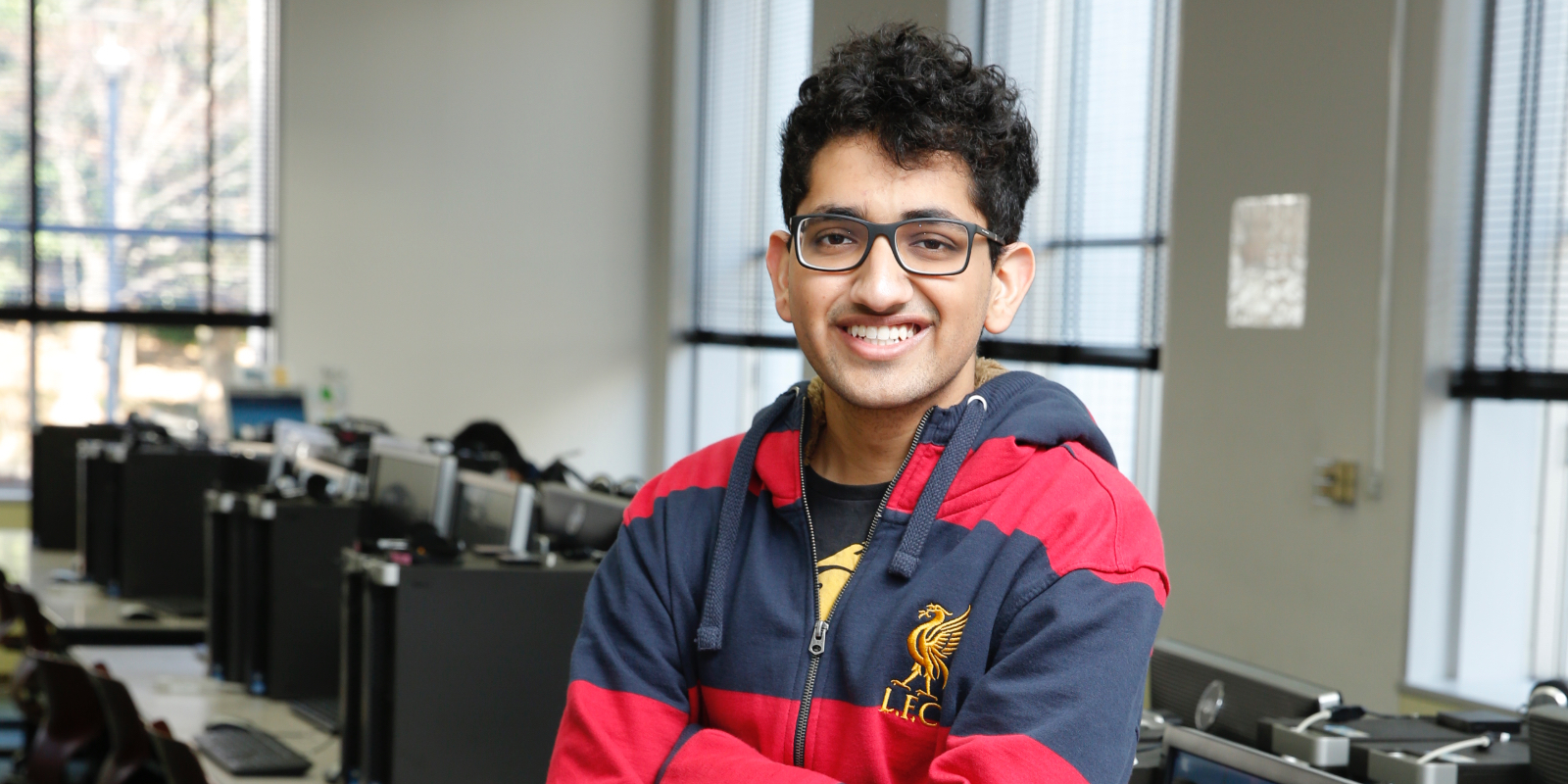Seminar(kenkyukai)
From: India
Faculty of Environment and Information Studies
From: India
Theme of Research or Project: Global Internet Policy
Exploring the potential of India and Japan to lead the international debate on Internet governance
Since my childhood, I had always wanted to come to Japan to study at some point. My father speaks Japanese, and I visited Japan with my family many times during my youth. I found out about the GIGA Program from someone else studying here, when the program was only about two years old. I had some idea of the studies at SFC, but the more I researched the more attracted I became. In India it is only possible to study one major, so the opportunity to study different fields was one of the main reasons to come to SFC. SFC also plays a major role in the Internet in Japan, with many of the leading professors responsible for creating the Internet in Asia and connecting it to the Internet in the West, and the only root name server for the Internet in the whole of Asia hosted at SFC.
I joined the Keio International Center for the Internet and Society (KICIS) group during my first semester here, after attending a course named 'New Technologies and Society'. KICIS focuses on Internet policy and governance, the social science side of the Internet, which is of increasing importance in responding to events unfolding dynamically every day. Technology needs policies and rules in place to ensure that everything works coherently, and as the Internet has grown in importance the multi-stakeholder model for Internet governance, involving academia, civil society, business and government, has been gaining a lot of attention and support, but there is not one model that fits all countries. KICIS works as a think tank, bridging the Internet policies of Japan and the rest of the world, and hosting conferences involving as many stakeholders as possible. Our members also frequently attend international conferences as part of our research activities. I even met with the CEO of ICANN, which oversees all Internet names and numbers globally, at ICANN 49. To be at SFC is an amazing opportunity, being surrounded all the time by top-level people in the field, and being able to talk with them informally as colleagues. This kind of exposure is something that you would be very lucky to be able to find anywhere else. There is a lot of freedom to choose your own path, and there is always a professor or project that will accommodate your interests, but from there you will be exposed to what is happening in the real world, with theory backed up by practical experience right from your first year.

I am currently writing a research paper on the Internet governance models adopted by India and Japan, comparing the similarities and differences in approach, as I believe that both countries have great potential to lead the debate in Internet governance, but for different reasons.
Japan has always been a leader in technology and is responsible for many developments in the Internet, but recently it has slowed down and it is mostly the West leading the way. Meanwhile India has a population of 1 billion people, which has huge potential for the Internet, and by 2020 there will be 1 billion Internet users in India.
Japan and India are very strong allies, and I hope that this is something that the two countries can work upon together. KICIS has a lot of links with partner organizations in the business sector and the government, and for India I have been contacting people in similar organizations to us. However, in Japan, most of the discussion on Internet governance is happening at KICIS, but in order to get a balanced view I will also be interviewing some people from the government, the business sector and the civil society.
It is important for the multi-stakeholder model that each of the stakeholders contributes equally, and to try and align all of the interests through finding mutual goals.
I want my research to raise questions rather than provide answers, as the answers need to come from the countries themselves, but I hope to provide a better understanding of how these issues are affecting the growth and development of the market and the Internet in India and Japan.
Note: Titles, affiliations, student years, etc. indicated for individuals are accurate at the time of January 2015.
